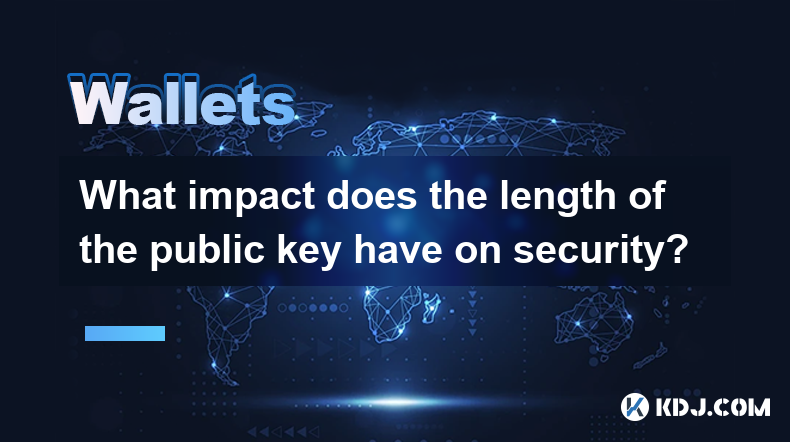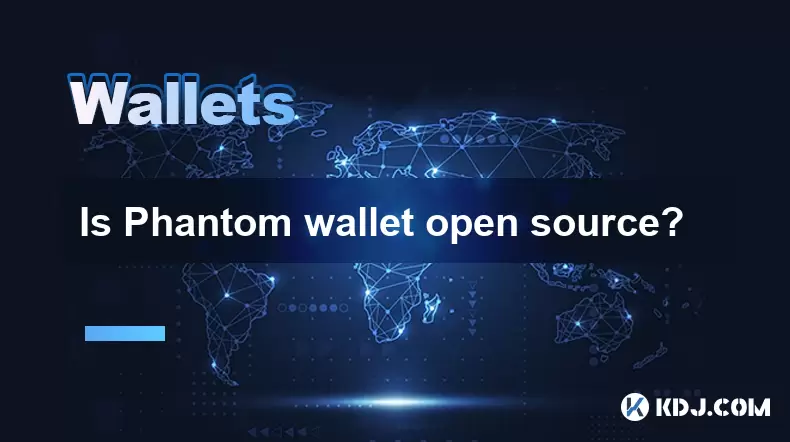-
 Bitcoin
Bitcoin $109,060.5091
-0.60% -
 Ethereum
Ethereum $2,554.0291
-1.47% -
 Tether USDt
Tether USDt $1.0003
0.00% -
 XRP
XRP $2.2391
-2.33% -
 BNB
BNB $659.7691
-0.31% -
 Solana
Solana $150.5458
-2.56% -
 USDC
USDC $1.0000
0.00% -
 TRON
TRON $0.2873
1.05% -
 Dogecoin
Dogecoin $0.1669
-3.75% -
 Cardano
Cardano $0.5827
-3.21% -
 Hyperliquid
Hyperliquid $38.9857
-3.92% -
 Sui
Sui $2.9281
-3.02% -
 Bitcoin Cash
Bitcoin Cash $482.7177
-4.36% -
 Chainlink
Chainlink $13.3876
-2.65% -
 UNUS SED LEO
UNUS SED LEO $9.0546
0.46% -
 Avalanche
Avalanche $18.1281
-3.21% -
 Stellar
Stellar $0.2404
-1.65% -
 Toncoin
Toncoin $2.8065
-2.82% -
 Shiba Inu
Shiba Inu $0.0...01158
-2.97% -
 Litecoin
Litecoin $88.4252
-2.90% -
 Hedera
Hedera $0.1559
-2.34% -
 Monero
Monero $319.4730
-2.17% -
 Polkadot
Polkadot $3.4421
-4.06% -
 Dai
Dai $1.0000
0.00% -
 Ethena USDe
Ethena USDe $1.0002
0.01% -
 Bitget Token
Bitget Token $4.4632
-2.78% -
 Uniswap
Uniswap $7.3746
-3.91% -
 Pepe
Pepe $0.0...09800
-6.01% -
 Aave
Aave $269.6237
-3.51% -
 Pi
Pi $0.4834
-3.35%
What impact does the length of the public key have on security?
Longer public keys exponentially increase brute-force attack difficulty, but algorithm choice and secure key generation/storage are equally vital for cryptocurrency security; quantum computing poses a future threat.
Mar 17, 2025 at 12:30 pm

Key Points:
- Public key length directly relates to the number of possible keys, impacting the brute-force attack difficulty.
- Longer keys offer exponentially greater security against brute-force attacks.
- The choice of cryptographic algorithm significantly influences security, regardless of key length.
- Key generation methods and storage practices are crucial for overall security.
- Quantum computing poses a future threat, potentially rendering even long keys vulnerable.
What Impact Does the Length of the Public Key Have on Security?
The security of a cryptocurrency system, fundamentally reliant on cryptography, is heavily influenced by the length of its public keys. Public keys are essential components in asymmetric cryptography, forming one half of a key pair. They're publicly available, allowing others to verify digital signatures and encrypt messages destined for the corresponding private key. The length of this public key directly impacts the security of the system.
The length of a public key, typically measured in bits, determines the size of the keyspace – the total number of possible keys. A longer key translates to a vastly larger keyspace. This is crucial because the primary threat to public-key cryptography is a brute-force attack, where an attacker tries every possible key until they find the correct one. A longer key exponentially increases the time and resources needed to conduct a successful brute-force attack, rendering it computationally infeasible.
For instance, a 256-bit key offers significantly more security than a 128-bit key. The difference is not linear; it's exponential. The number of possible keys increases by a factor of 2 for every bit added. This means a 256-bit key has 2128 times more possible keys than a 128-bit key, making it incredibly harder to crack. This vast keyspace is what makes modern cryptocurrencies secure.
However, key length is not the sole determinant of security. The cryptographic algorithm used to generate and manage the keys is equally important. A weak algorithm, regardless of key length, can be susceptible to various attacks, such as side-channel attacks or mathematical weaknesses within the algorithm itself. Therefore, the selection of a robust and well-vetted algorithm is paramount. Algorithms like ECDSA (Elliptic Curve Digital Signature Algorithm) and EdDSA (Edwards-curve Digital Signature Algorithm) are widely used in cryptocurrencies for their efficiency and security.
The way keys are generated and stored also significantly impacts overall security. Random number generators used in key generation must be cryptographically secure to prevent predictability and potential vulnerabilities. Improper key storage, such as storing keys on insecure devices or using weak passwords, can negate the benefits of even the longest keys. Best practices dictate the use of hardware security modules (HSMs) and robust security protocols for key management.
Furthermore, the advent of quantum computing presents a future threat to public-key cryptography. Quantum computers, with their potential to solve certain computational problems exponentially faster than classical computers, could break currently secure key lengths. Research into quantum-resistant cryptography is underway to address this emerging threat. Post-quantum cryptographic algorithms are being developed to ensure the long-term security of cryptographic systems in the face of quantum computing advancements. The length of the keys used in these algorithms will also be crucial in determining their security.
The process of generating a public key involves several steps, including:
- Selecting a suitable cryptographic algorithm (e.g., ECDSA).
- Generating a private key using a cryptographically secure random number generator.
- Deriving the public key from the private key using the chosen algorithm.
The security of this entire process is crucial. A flaw at any stage can compromise the security of the entire system, rendering the length of the key irrelevant.
Frequently Asked Questions:
Q: Are longer public keys always more secure?
A: While longer keys generally provide greater security against brute-force attacks, the choice of cryptographic algorithm and key management practices are equally crucial. A longer key used with a weak algorithm is still vulnerable.
Q: What is the optimal length for a public key in cryptocurrency?
A: The optimal length depends on the chosen cryptographic algorithm and the desired level of security. Currently, 256-bit keys are widely considered secure for most applications, but the landscape might shift with the emergence of quantum computing.
Q: How does the length of a public key affect transaction speed?
A: Longer keys can lead to slightly larger transaction sizes and potentially slower processing times, although this effect is usually minimal compared to other factors affecting transaction speed on a blockchain.
Q: Can a public key be cracked?
A: Theoretically, any key can be cracked with enough computational power. However, the vast keyspace associated with sufficiently long keys makes brute-force attacks practically infeasible with current technology. Other attacks, exploiting weaknesses in the cryptographic algorithm or key management, are more likely threats.
Q: What is the relationship between private key length and public key length?
A: The length of the private key is directly related to the length of the public key. They are generated as a pair, and the security of both relies on the strength of the underlying cryptographic algorithm and the length of the key. The private key is usually the same length or slightly shorter than the public key, depending on the specific algorithm used.
Disclaimer:info@kdj.com
The information provided is not trading advice. kdj.com does not assume any responsibility for any investments made based on the information provided in this article. Cryptocurrencies are highly volatile and it is highly recommended that you invest with caution after thorough research!
If you believe that the content used on this website infringes your copyright, please contact us immediately (info@kdj.com) and we will delete it promptly.
- Bitcoin's Pattern Break: Are HODLers the Key to the Next Surge?
- 2025-07-04 18:50:12
- Meme Coins, Crypto Tokens, and Joke Creation: A New Yorker's Take
- 2025-07-04 18:30:12
- Level Up Your Lawn: Grass Seeds, Garden Experts, and the £1 Coin Hack!
- 2025-07-04 18:30:12
- Sui Price Surges Amid Lion Group's Treasury Move: What's Next?
- 2025-07-04 16:30:13
- BLAST Price Bounces Back After Token Unlock: Is the Rally Real?
- 2025-07-04 17:10:16
- Wormhole, Coinbase, and Interoperability: A New Era for Crypto?
- 2025-07-04 16:30:13
Related knowledge

How to cancel a pending transaction in Phantom wallet?
Jul 03,2025 at 07:21pm
Understanding Pending Transactions in Phantom WalletA pending transaction in the Phantom wallet occurs when a user initiates a transfer or interaction with the Solana blockchain, but it hasn't yet been confirmed by the network. This can happen due to various reasons such as low transaction fees, network congestion, or incorrect gas settings. It's import...

How to see the estimated value of my tokens in Phantom wallet?
Jul 04,2025 at 12:21am
What is Phantom Wallet?Phantom wallet is one of the most popular cryptocurrency wallets designed for the Solana blockchain. It allows users to store, send, receive, and manage various tokens built on Solana, including SPL tokens and NFTs. The wallet offers a user-friendly interface, making it accessible for both beginners and advanced users in the crypt...

How to lock my Phantom wallet extension?
Jul 03,2025 at 11:14am
What Is the Phantom Wallet and Why Lock It?The Phantom wallet is a popular non-custodial cryptocurrency wallet designed for interacting with the Solana blockchain. Supporting both browser extensions and mobile apps, Phantom allows users to store, send, receive, and stake SOL tokens, as well as interact with decentralized applications (dApps). Securing y...

Does Phantom wallet offer two-factor authentication (2FA)?
Jul 03,2025 at 09:00am
Understanding Phantom Wallet and Its Security FeaturesPhantom wallet is a widely used non-custodial cryptocurrency wallet that supports the Solana blockchain. It allows users to store, send, receive, and interact with decentralized applications (dApps) seamlessly. As security is a top priority for any crypto wallet user, security features like two-facto...

What is "rent" on Solana and how does it affect my Phantom wallet?
Jul 02,2025 at 08:35pm
Understanding 'Rent' on SolanaIn the context of Solana, the term 'rent' refers to a storage fee that users pay for maintaining data on the blockchain. Unlike Ethereum, where storage costs are paid once via gas fees during contract deployment, Solana implements a recurring cost model to ensure efficient usage of network resources. This means that any acc...

Is Phantom wallet open source?
Jul 03,2025 at 12:29am
What is Phantom Wallet?Phantom wallet is a non-custodial cryptocurrency wallet primarily designed for the Solana blockchain. It allows users to store, send, receive, and interact with decentralized applications (dApps) on the Solana network. The wallet is available as a browser extension and mobile application, offering a seamless experience for both be...

How to cancel a pending transaction in Phantom wallet?
Jul 03,2025 at 07:21pm
Understanding Pending Transactions in Phantom WalletA pending transaction in the Phantom wallet occurs when a user initiates a transfer or interaction with the Solana blockchain, but it hasn't yet been confirmed by the network. This can happen due to various reasons such as low transaction fees, network congestion, or incorrect gas settings. It's import...

How to see the estimated value of my tokens in Phantom wallet?
Jul 04,2025 at 12:21am
What is Phantom Wallet?Phantom wallet is one of the most popular cryptocurrency wallets designed for the Solana blockchain. It allows users to store, send, receive, and manage various tokens built on Solana, including SPL tokens and NFTs. The wallet offers a user-friendly interface, making it accessible for both beginners and advanced users in the crypt...

How to lock my Phantom wallet extension?
Jul 03,2025 at 11:14am
What Is the Phantom Wallet and Why Lock It?The Phantom wallet is a popular non-custodial cryptocurrency wallet designed for interacting with the Solana blockchain. Supporting both browser extensions and mobile apps, Phantom allows users to store, send, receive, and stake SOL tokens, as well as interact with decentralized applications (dApps). Securing y...

Does Phantom wallet offer two-factor authentication (2FA)?
Jul 03,2025 at 09:00am
Understanding Phantom Wallet and Its Security FeaturesPhantom wallet is a widely used non-custodial cryptocurrency wallet that supports the Solana blockchain. It allows users to store, send, receive, and interact with decentralized applications (dApps) seamlessly. As security is a top priority for any crypto wallet user, security features like two-facto...

What is "rent" on Solana and how does it affect my Phantom wallet?
Jul 02,2025 at 08:35pm
Understanding 'Rent' on SolanaIn the context of Solana, the term 'rent' refers to a storage fee that users pay for maintaining data on the blockchain. Unlike Ethereum, where storage costs are paid once via gas fees during contract deployment, Solana implements a recurring cost model to ensure efficient usage of network resources. This means that any acc...

Is Phantom wallet open source?
Jul 03,2025 at 12:29am
What is Phantom Wallet?Phantom wallet is a non-custodial cryptocurrency wallet primarily designed for the Solana blockchain. It allows users to store, send, receive, and interact with decentralized applications (dApps) on the Solana network. The wallet is available as a browser extension and mobile application, offering a seamless experience for both be...
See all articles

























































































